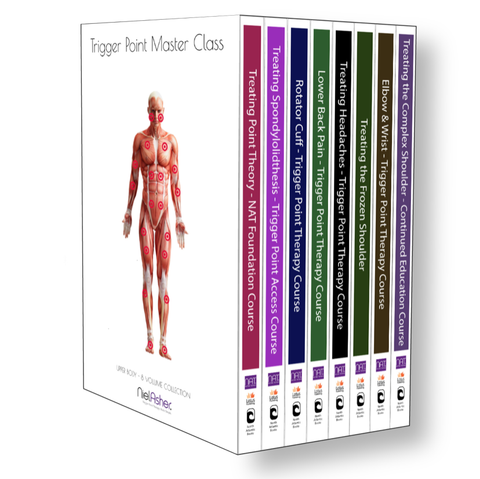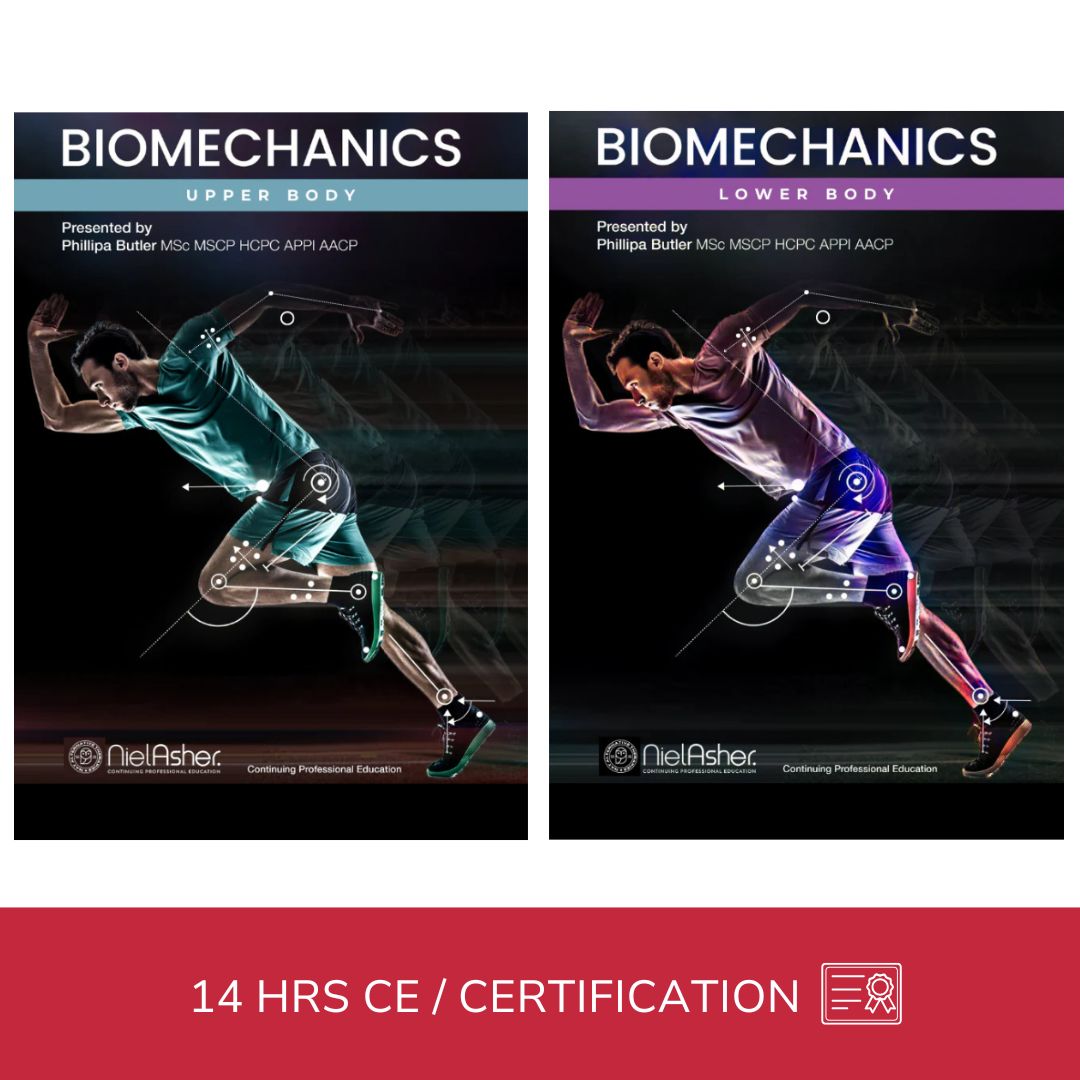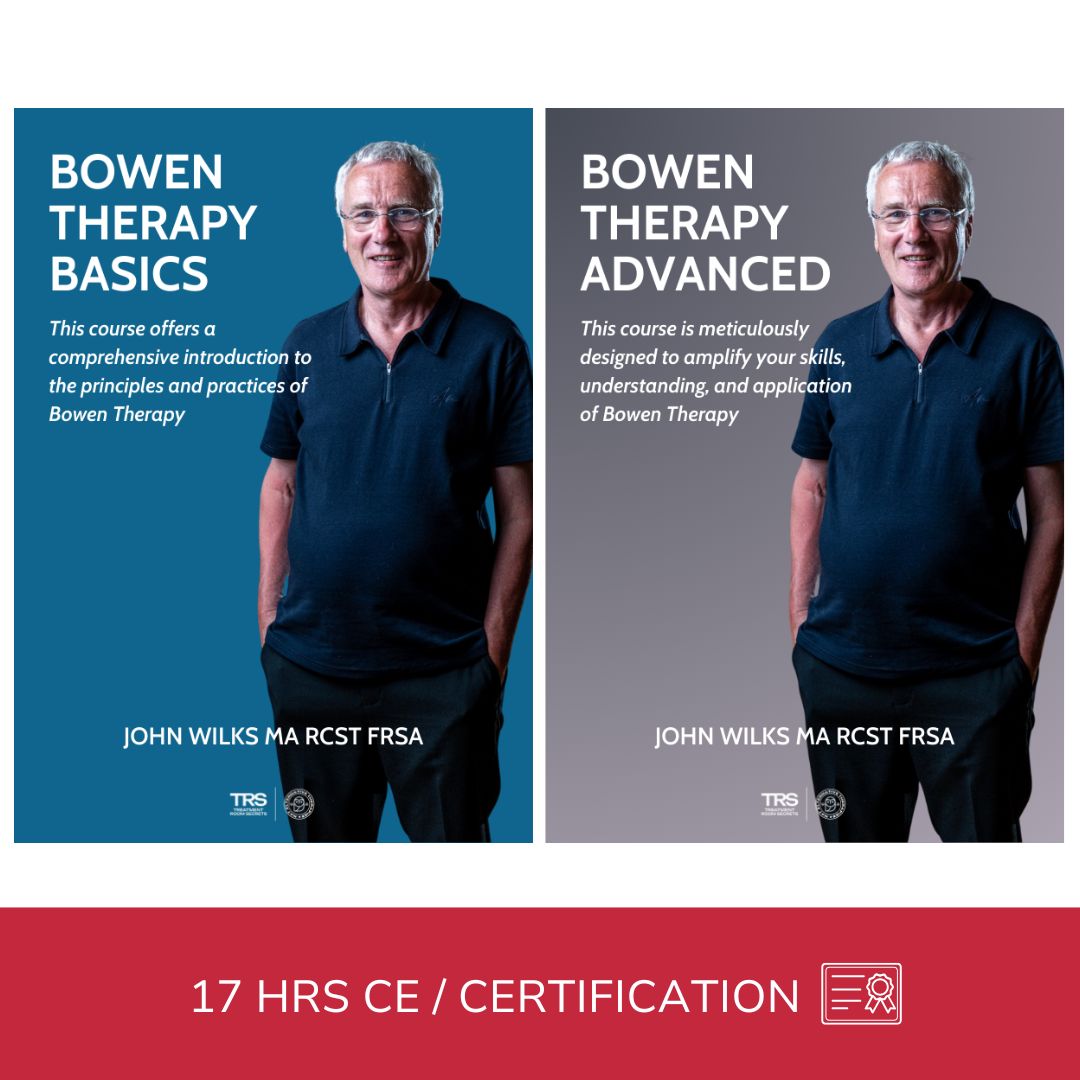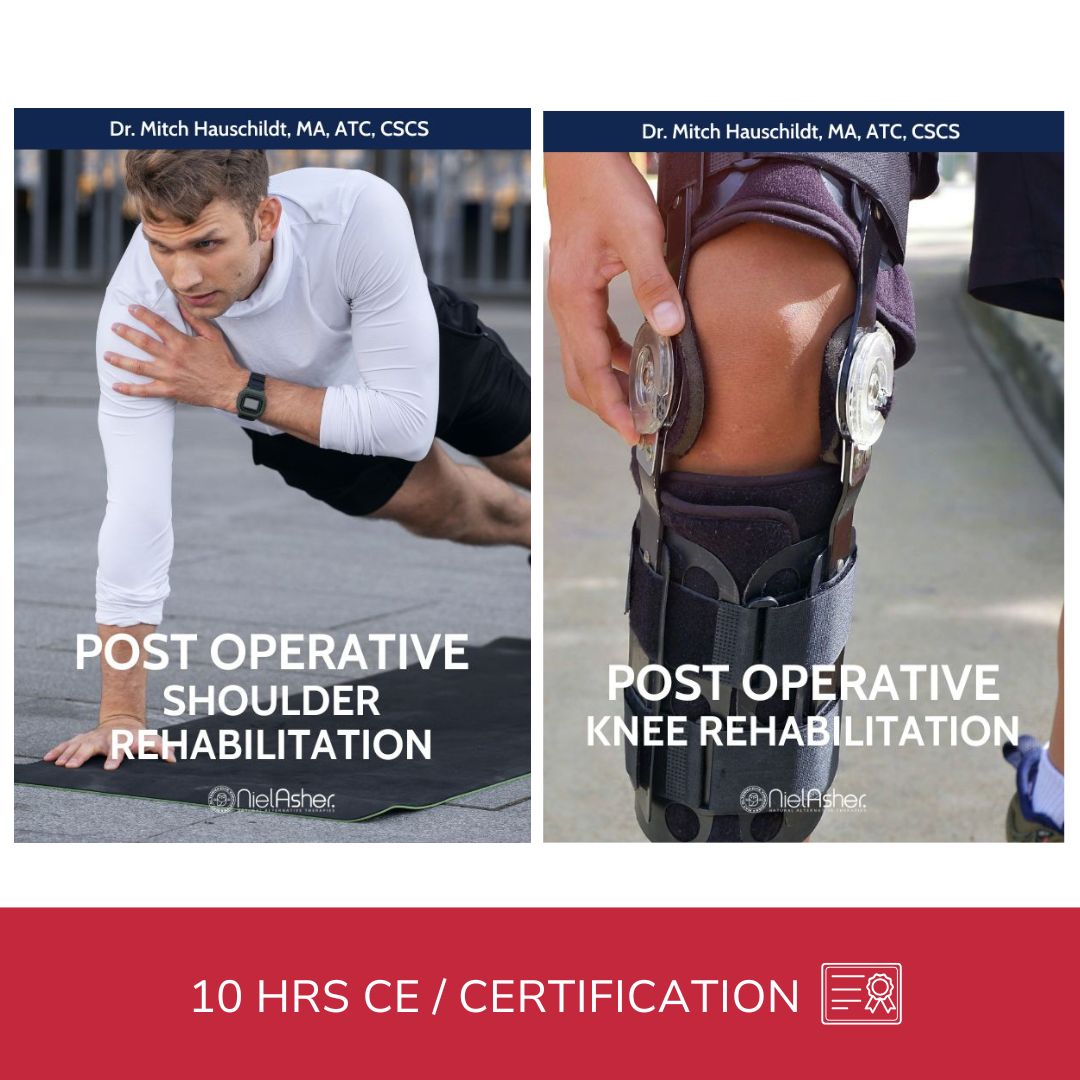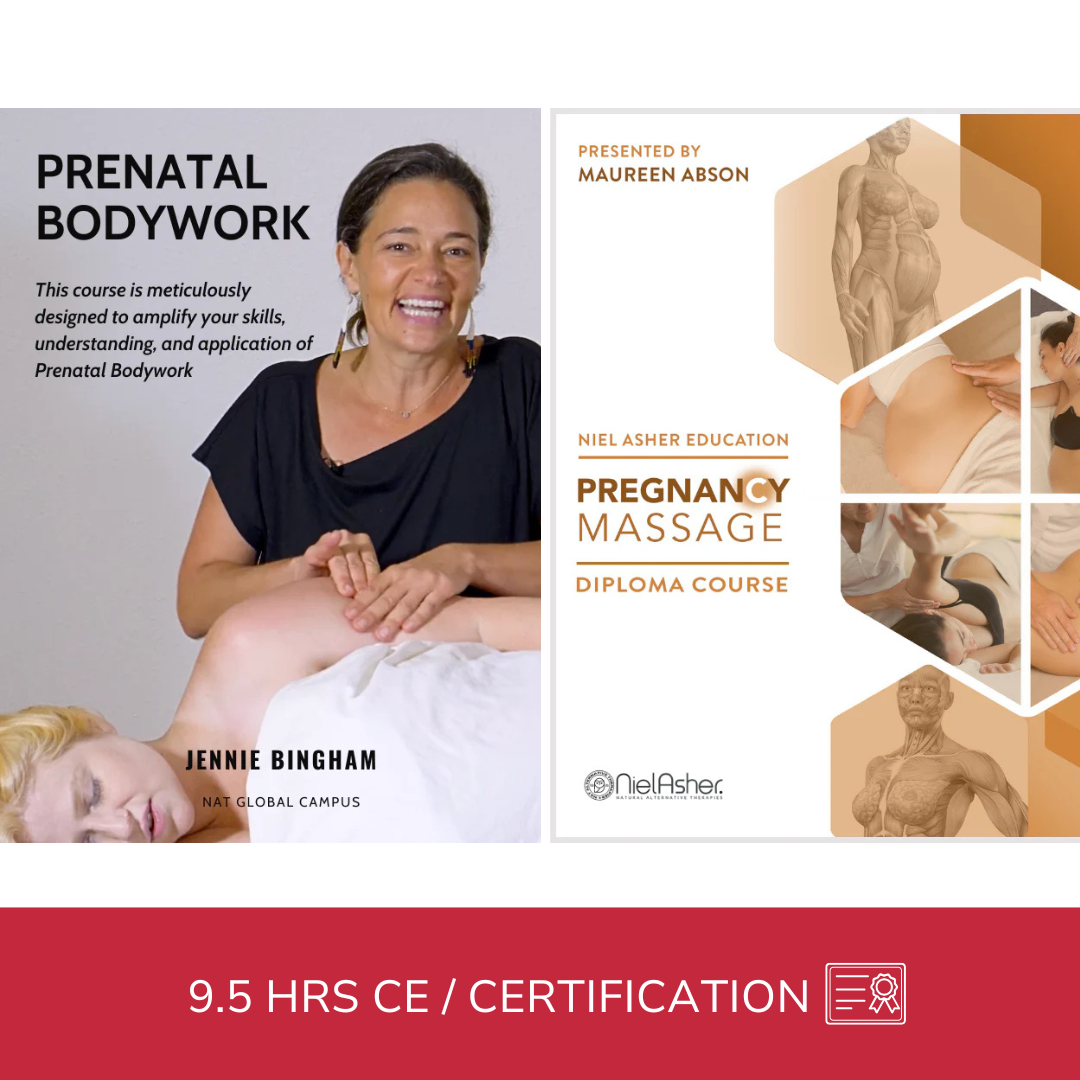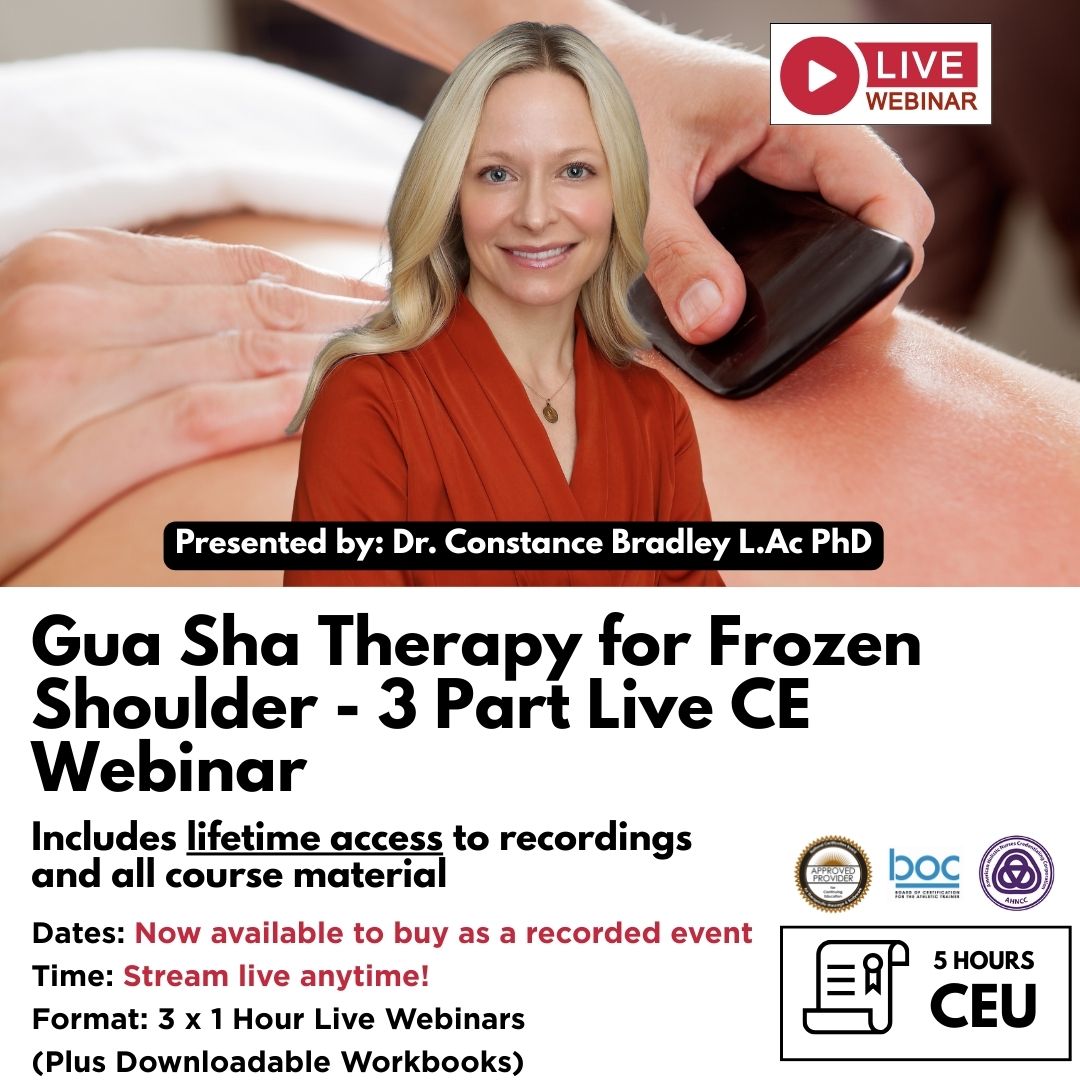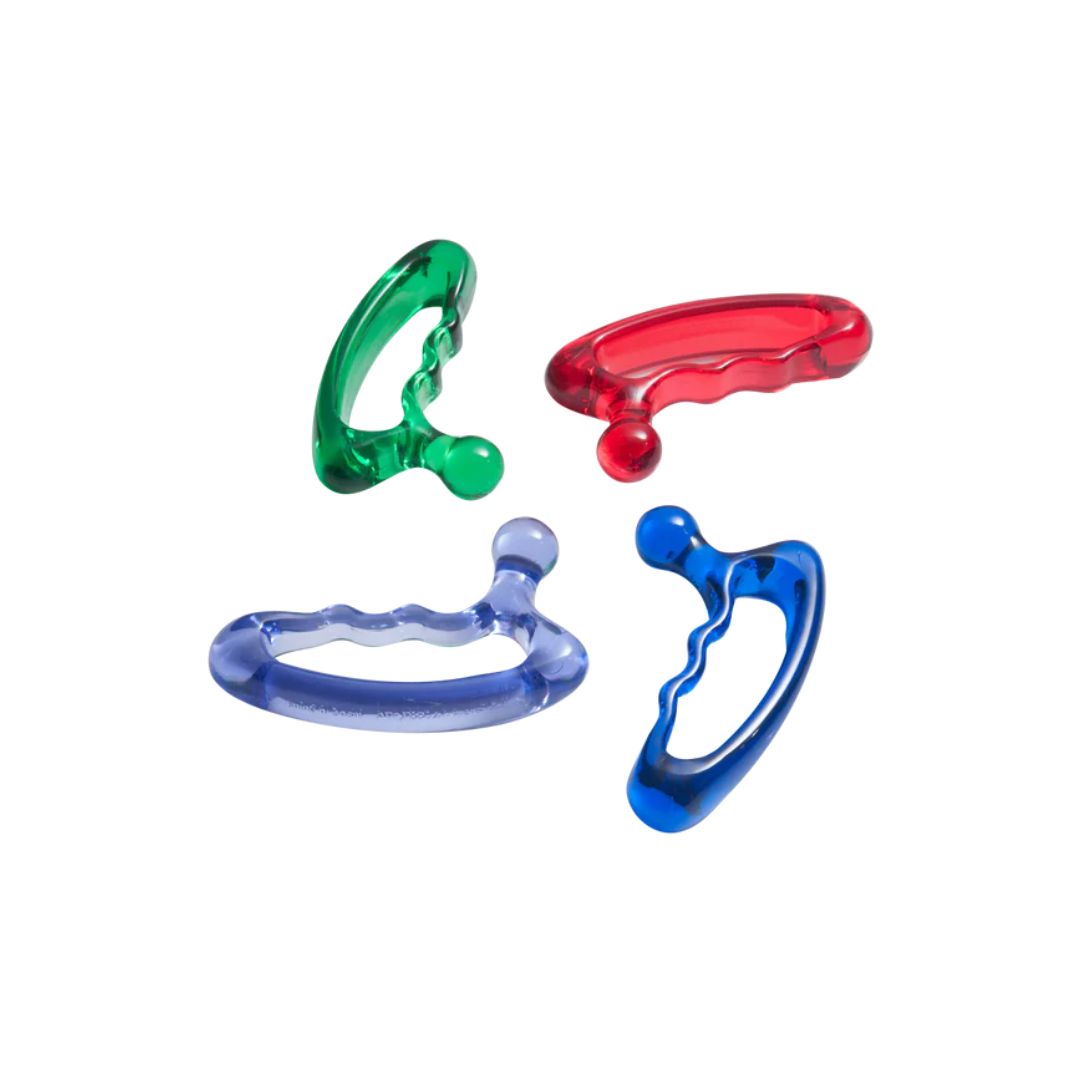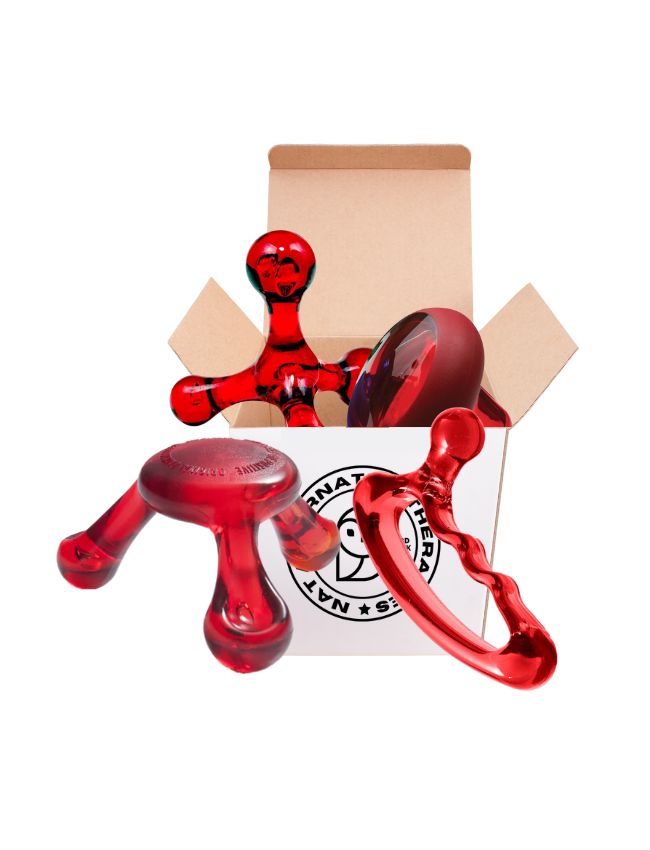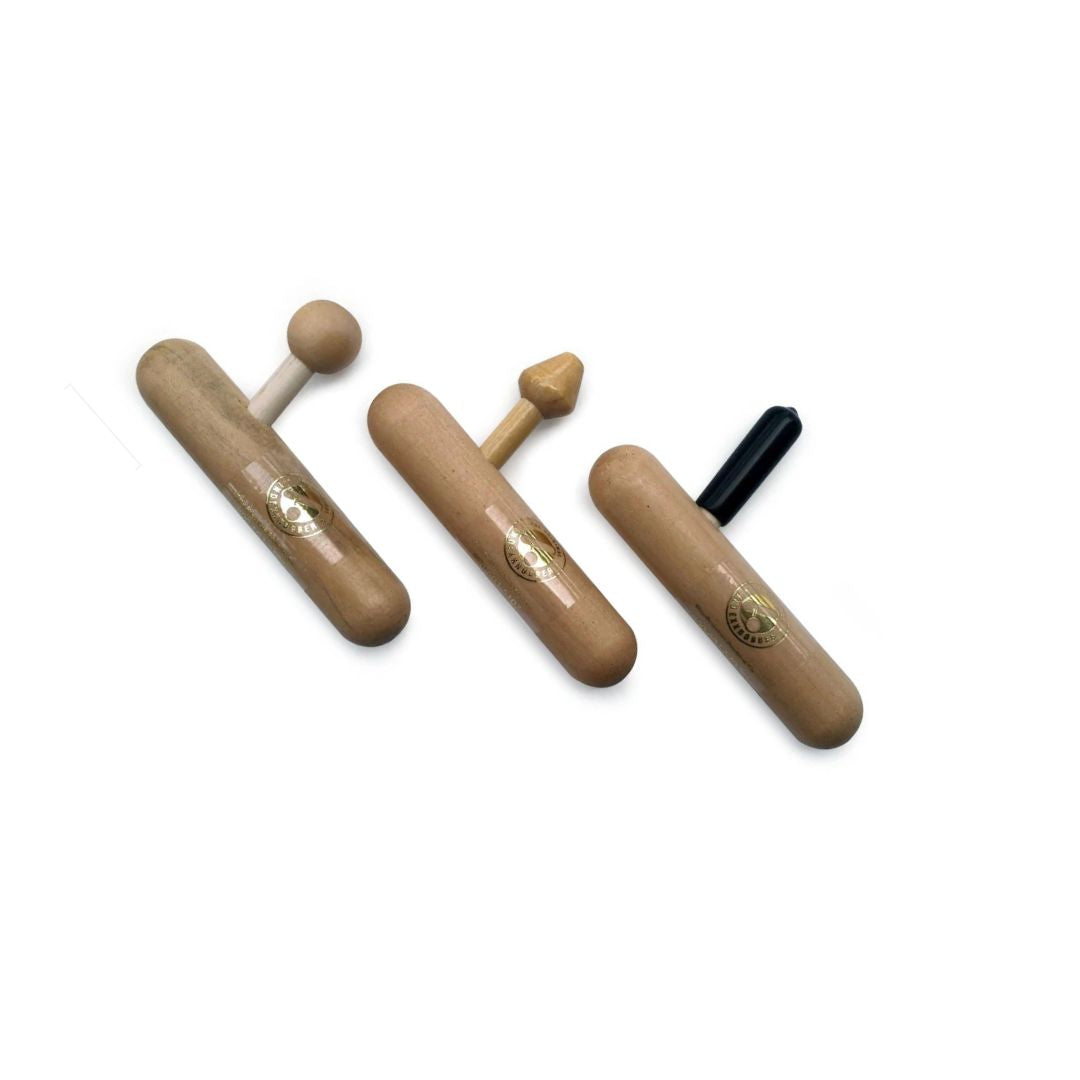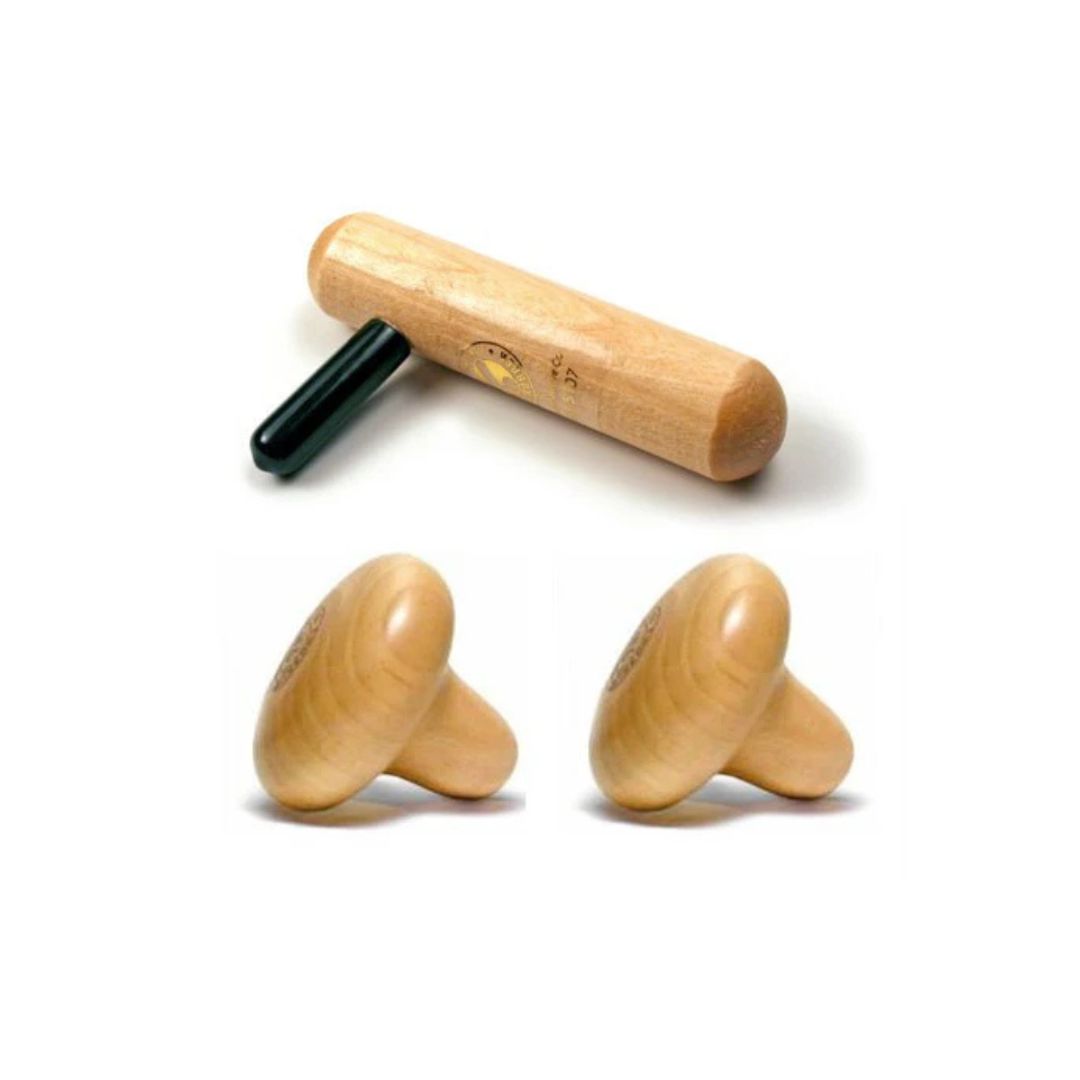Posture Muscles - Awesome Stretches for Neck and Shoulders!
Neck Pain and Stiffness is often associated with active Trigger Points in the Scalenes Muscles and is relieved when these are released
The more time spent with a forward head posture, the more likely it is that one will develop neck and shoulder problems
Most neck pain that is not caused by whiplash or other trauma has a postural component as part of the underlying problem. Sitting atop the body, the health of the neck is subject to the curvature of the spine and the position of the head above.
Neck pain is often associated with trigger points, and these may develop as a result of postural issues or by way of over-compensation for an injury or trigger points elsewhere in the body (commonly the shoulders).
If the alignment of the head and spine is not optimal, the neck can be predisposed to injury and/or the degenerative effects of wear and tear over time.
In cases of neck pain we are typically looking for trigger points in the scalenes, suboccipital, subscapularis, pectoralis minor, and levator scapulae muscles.
Forward Head and Shoulder Posture
The most common postural condition that contributes to the formation of trigger points and neck pain, is forward head and shoulder posture.
Forward head posture is when the neck slants forward placing the head in front of the shoulders. This may lead to several problems:
- The forward pull of the weight of the head puts undue stress on the vertebrae of the lower neck, contributing to degenerative disc disease and other degenerative neck problems.
- This posture causes the muscles of the upper back to continually overwork to counterbalance the pull of gravity on the forward head.
- This position is often accompanied by forward shoulders and a rounded upper back, which not only feeds into the neck problem but can also cause shoulder pain.
The more time spent with a forward head posture, the more likely it is that one will develop neck and shoulder problems.
Trigger Point Therapy
Treating common neck pain is “meat and potatoes” to most manual therapists. Neck pain can be quite disabling and often disturbs sleep, so we tend to see a continual stream of clients who are highly motivated to seek treatment.
Trigger point therapy may be extremely effective for most types of neck pain and may provide both short and long term relief.
The trigger points themselves are easily accessible and the treatment protocols are well established.
Self Managed Care
In most cases we recommend light stretching for clients to perform at home between treatments. Below you will find examples of 5 neck stretches that we regularly recommend. None of these require any equipment and so are simple to perform at home.
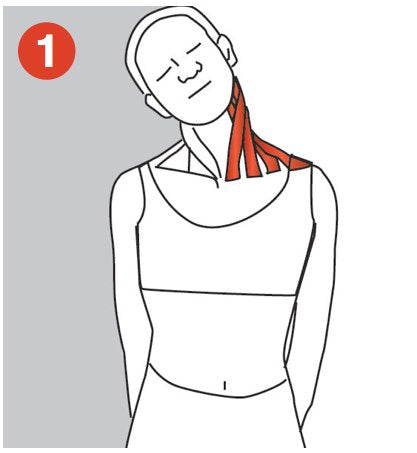
Technique
Look forward while keeping your head up. Slowly move your ear towards your shoulder while keeping your hands behind your back.
Muscles that you're stretching
Primary muscles: Levator scapulae. Trapezius.
Secondary muscles: Sternocleidomastoids. Scalenus anterior, medius and posterior.
Injury where this may help dissipate trigger points
The pain experienced in a variety of shoulder and neck conditions can be due to trigger points in the levator scapulae muscle. This muscle is often overworked when we are tense or stressed.
Note
Keep your shoulders down and your hands behind your back. Do not lift your shoulders up when you tilt your head to the side.
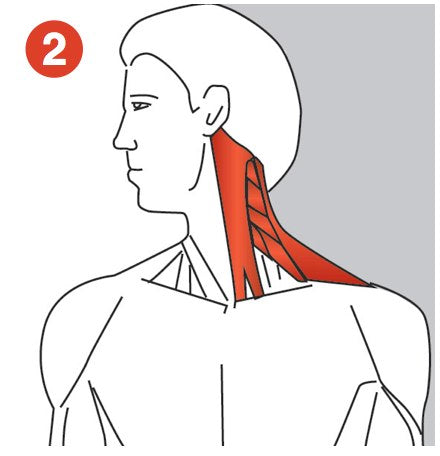
Technique
Stand upright while keeping your shoulders still and your head up. Slowly rotate your chin towards your shoulder.
Muscles that you're stretching
Primary muscles: Sternocleidomastoids. Splenius capitis. Semispinalis capitis. Longissimus capitis. Secondary muscles: Levator scapulae. Trapezius.
Injury where this may help dissipate trigger points
Neck muscle strain. Whiplash (neck sprain). Cervical nerve stretch syndrome. Wryneck (acute torticollis).
Note
Keep your head up. Do not let your chin fall towards your shoulders.
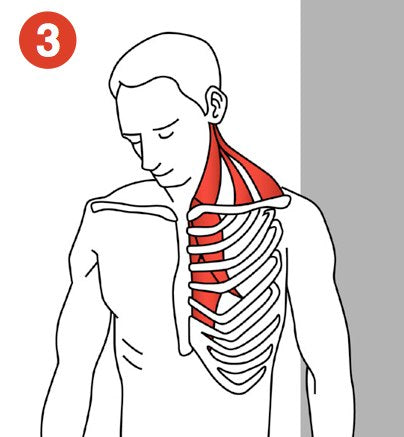
Technique
Stand upright and let your chin fall forward towards your chest. Then gently lean your head to one side. Relax your shoulders and keep your hands by your side.
Muscles that you're stretching
Primary muscles: Levator scapulae. Trapezius. Rhomboids. Secondary muscles: Semispinalis capitis and cervicis. Spinalis capitis and cervicis. Longissimus capitis and cervicis. Splenius capitis and cervicis.
Injury where this may help dissipate trigger points
Neck muscle strain. Whiplash (neck sprain). Cervical nerve stretch syndrome. Wryneck (acute torticollis).
Note
Some people are more flexible in the upper back and neck than others. Do not overstretch by forcing your head down; instead, relax and let the weight of your head do the stretching for you.
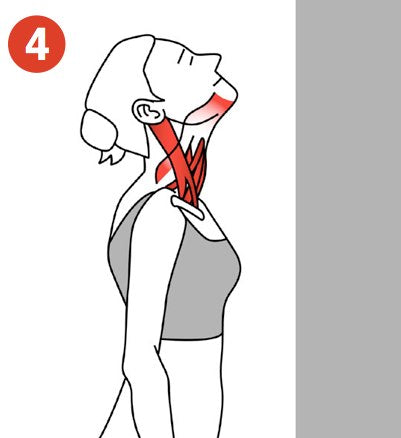
Technique
Stand upright and lift your head, looking upwards as if trying to point up with your chin. Relax your shoulders and keep your hands by your side.
Muscles that you're stretching
Primary muscles: Platysma. Sternocleidomastoids. Secondary muscles: Omohyoideus. Sternohyoideus. Sternothyroideus.
Injury where this may help dissipate trigger points
Neck muscle strain. Whiplash (neck sprain). Cervical nerve stretch syndrome. Wry neck (acute torticollis).
Note
Keep your mouth closed and your teeth together when doing this stretch.
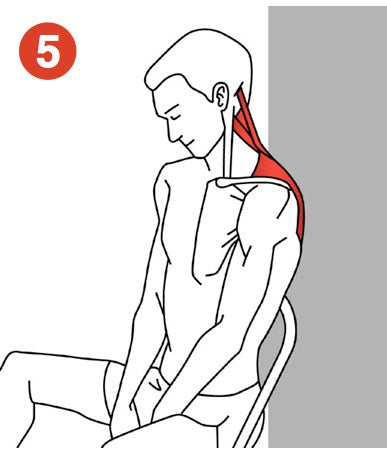
Technique
While sitting on a chair, cross your arms over and hang on to the chair between your legs. Let your head fall forward and then lean backwards.
Muscles that you're stretching
Primary muscles: Semispinalis capitis and cervicis. Spinalis capitis and cervicis. Longissimus capitis and cervicis. Splenius capitis and cervicis. Secondary muscles: Levator scapulae. Trapezius. Rhomboids.
Injury where this may help dissipate trigger points
Neck muscle strain. Whiplash (neck sprain). Cervical nerve stretch syndrome. Wry neck (acute torticollis).
Note
Some people are more flexible in the upper back and neck than others. Do not overstretch by forcing your head down: instead, relax and let the weight of your head do the stretching for you.
Trigger points, also identified as muscle knots, are often under-diagnosed and can be a common cause of neck pain. Trigger point therapy combined with self help techniques are a great natural solution to help relieve pain, and are safe to perform. Ask your therapist about trigger points.
Links
Find a Trigger Point Professional in your area
More Articles About Trigger Points
Certify as a Trigger Point Therapist
About NAT Courses
As a manual therapist or exercise professional, there is only one way to expand your business - education!
Learning more skills increases the services that you offer and provides more opportunity for specialization.
Every NAT course is designed to build on what you already know, to empower you to treat more clients and grow your practice, with a minimal investment in time and money.
Help Desk
About Niel Asher Education
Niel Asher Education is a leading provider of distance learning and continued education courses.
Established in the United Kingdom in 1999, we provide course and distance learning material for therapists and other healthcare professionals in over 40 countries.
Our courses are accredited by over 90 professional associations and national accreditation institutions including the National Academy of Sports Medicine (NASM) and National Certification Board for Therapeutic Massage and Bodywork (NCBTMB). Full details of all international course accreditations can be found on our website.
Printed course materials and other products offered on our websites are despatched worldwide from our 3 locations in the UK (London), USA (Pennsylvania) and Australia (Melbourne).
More About Us
NAMTPT AWARD
We are honored to have received the "Excellence in Education" Award from the National Association of Myofascial Trigger Point Therapists.
Since 1999 Niel Asher Education has won numerous awards for education and in particular for education and services provided in the field of trigger point therapy.
Read Full Article
Award Winning Instructors
Niel Asher Healthcare course instructors have won a host of prestigious awards including 2 lifetime achievement honorees - Stuart Hinds, Lifetime Achievement Honoree, AAMT, 2015, and Dr. Jonathan Kuttner, MD, Lifetime Achievement Honoree, NAMTPT, 2014.
Meet the Instructors
Accreditation

If you are a qualified/licensed manual therapist or exercise/fitness professional you can expand your credentials with NAT certification.
In addition to national accreditation for continued education, each course that we offer includes "NAT Learning Credits". By taking and completing courses you can accumulate NAT credits to qualify for NAT certification.
There are currently 3 levels of NAT certification. Certifying NAT is a valuable way to show your clients that you take continued education seriously, and to promote your skills and qualifications.
Most of our courses are accredited for CE/CPD/CPE. A full list of CE accreditations can be found by clicking on the link below.
About NAT Certification
Niel Asher Technique
Since 1999 the Niel Asher Technique for treating trigger points has been adopted by over 100,000 therapists worldwide, and has been applied to the treatment of a number of common musculoskeletal injuries.
The Niel Asher Technique for treating frozen shoulder was first introduced and published in 1997 and has been widely adopted by therapists and exercise professionals working within elite sports and athletics.
Read More
International Students
Most of our courses are available as either "Printed" or 'Download" editions, wherever you live. Internet connection is required to access online and downloadable material.
When you purchase a download edition, you receive immediate lifetime access to all course material. Course texts can be downloaded and printed if required.
When you purchase a "Printed" edition, you will also receive free access to the download edition.
We ship Worldwide from locations in the USA, UK, and Australia. Most items are despatched within 24 hours and shipping is FREE for all orders over US$50.
Shipping
Where to Start?
We offer a range of over 50 courses, presented by some of the worlds leading manual therapists. All courses are reviewed annually, and new courses are regularly added.
Our courses are modular, and designed to build on what you already know. For more information, please visit our "Where to Start?" page.
Start Here
Trigger Point Therapy Master Course
NAT Online Education Membership Plans
Unlimited Access to ALL NAT Courses (CEU, CPD, CPE) from $19.95/monthly


About Niel Asher Education
Niel Asher Education (NAT Global Campus) is a globally recognised provider of high-quality professional learning for hands-on health and movement practitioners. Through an extensive catalogue of expert-led online courses, NAT delivers continuing education for massage therapists, supporting both newly qualified and highly experienced professionals with practical, clinically relevant training designed for real-world practice.
Beyond massage therapy, Niel Asher Education offers comprehensive continuing education for physical therapists, continuing education for athletic trainers, continuing education for chiropractors, and continuing education for rehabilitation professionals working across a wide range of clinical, sports, and wellness environments. Courses span manual therapy, movement, rehabilitation, pain management, integrative therapies, and practitioner self-care, with content presented by respected educators and clinicians from around the world.
Known for its high production values and practitioner-focused approach, Niel Asher Education emphasises clarity, practical application, and professional integrity. Its online learning model allows practitioners to study at their own pace while earning recognised certificates and maintaining ongoing professional development requirements, making continuing education accessible regardless of location or schedule.
Through partnerships with leading educational platforms and organisations worldwide, Niel Asher Education continues to expand access to trusted, high-quality continuing education for massage therapists, continuing education for physical therapists, continuing education for athletic trainers, continuing education for chiropractors, and continuing education for rehabilitation professionals, supporting lifelong learning and professional excellence across the global therapy community.
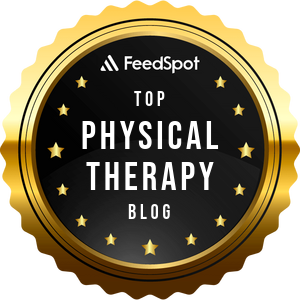
Continuing Professional Education
Looking for Massage Therapy CEUs, PT and ATC continuing education, chiropractic CE, or advanced manual therapy training? Explore our evidence-based online courses designed for hands-on professionals.

